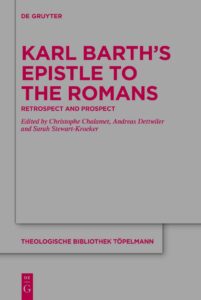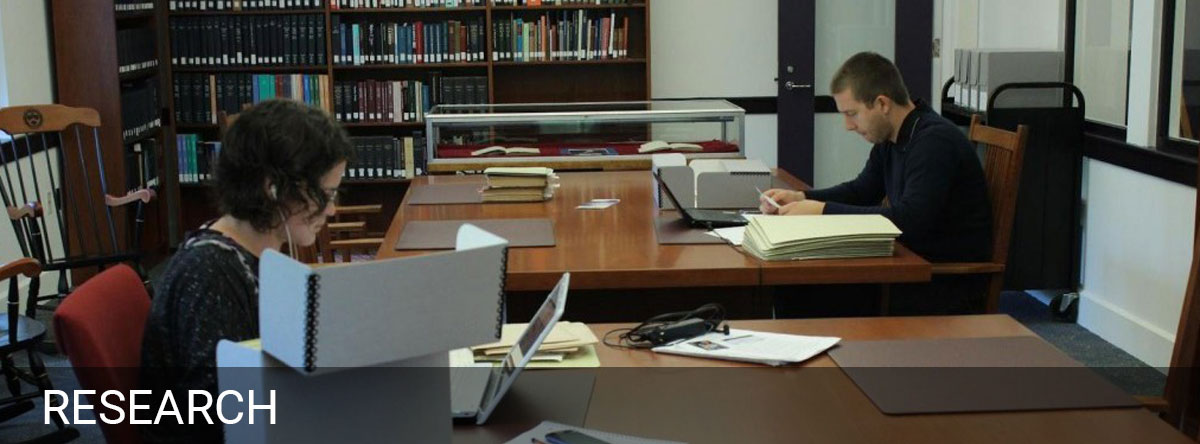 Christophe Chalamet, Andreas Dettwiler, Sarah Stewart-Kroeker (eds). Karl Barth’s Epistle to the Romans: Retrospect and Prospect (Berlin/Boston: De Gruyter, 2022), viii + 495 pp. €139.95 (hardcover).
Christophe Chalamet, Andreas Dettwiler, Sarah Stewart-Kroeker (eds). Karl Barth’s Epistle to the Romans: Retrospect and Prospect (Berlin/Boston: De Gruyter, 2022), viii + 495 pp. €139.95 (hardcover).
The book under review stems from a conference held in Geneva in June 2019 that marked the 100th anniversary of the first edition of Barth’s commentary on Romans. It contains 28 contributions dealing with the genesis, theology, and current relevance of Barth’s two commentaries (1919 and 1922, respectively). While most of the texts are English, six French and four German texts have also been included in the volume published in the Theologische Bibliothek Töpelmann series by De Gruyter. Each text is preceded by a brief English summary, which is helpful. Furthermore, the book contains a list of short biographies of the contributors, an index of names, a subject index, and ten photographs from Barth’s life in the 1910s and 20s.
After a brief introduction by co-editor Christophe Chalamet, the 495-page volume divides into seven parts. Part I (“Barth as Scriptural Theologian”) brings together four contributions dealing with Barth’s hermeneutical approach to Paul’s letter to the Romans. Some of these texts touch on the question of whether and to what extent Barth’s commentaries on Romans are exegetical texts in the proper sense – a question that Chalamet preemptively called “a bit of a dead-end” in his introduction, as the answer to it “can only be two-sided” (3). Part II offers three contributions on the topic of “Hermeneutics and Metaphysics” by Jean-Luc Marion, Jean Grondin, and Bruce McCormack. Part III contains two texts on the historical context of the commentaries on Romans. In the first, the Basel Barth archivist Peter Zocher counters various common misconceptions about Barth’s life and work in Safenwil and Göttingen, while in the second, Chalamet addresses the intellectual origins of the commentaries on the Epistle to the Romans. He describes, for example, the theology of the Swiss religious socialist Hermann Kutter and its influence on Barth. The contributions of Part IV, written by Günter Thomas and Matthias Gockel, focus entirely on the theology and the particular dynamics of the 1919 edition of the commentary. Most of the texts of pt. V deal with the controversial topic of faith in Barth’s theology. In pt. VI, five different perspectives on the ethics of early Barth stand side by side, showing that Barth’s commentaries on the Epistle to the Romans by no means amount to a negation of ethical thought, as one might assume on first reading. The last part of the book (pt. VII) consists of thematically mixed essays in which Barth’s early and radical thoughts are theologically examined and related to his later work and to contemporary theological challenges.
The various authors engage in classic Barth exegesis and interpret familiar elements of the metaphorical language of the commentaries on Romans in a precise and profitable way. Hans-Christoph Askani writes about the “line of death” (“Todeslinie”; 207); Cambria Janae Kaltwasser explains Barth’s positioning of the Christian at the “zero-point between two branches of a hyperbola” (421). Pierre Manent deals with Barth’s designation of faith as a “void” (“Hohlraum”; 222) and Bruce McCormack with God’s “[w]holly otherness” (112). In addition to this exegetical detail work, Barth’s early thoughts are confronted with quite disparate interlocutors. Several times the well-known voices of Gadamer, Heidegger, and Kierkegaard are echoed; but also the concepts of Harry G. Frankfurt (267f.; by Andrew J. Peterson) and Alasdair MacIntyre (466f.; by Luke Zerra) are brought up in a surprisingly fitting way. In such explanations and references, the anthology offers a commentary on the commentary, which contributes to the understanding of what Barth could have meant.
Beyond that, it also stimulates the productive continuation of his theology. The book’s most original insights are likely to be found where Barth’s century-old formulations, thoughts, and concepts are linked to debates current in 2019 that had previously been mostly absent from Barth scholarship. I shall only mention a few examples. Matthias D. Wüthrich asks to what extent Barth’s doctrine of creation contains the potential for critical engagement with the trans- and posthumanism of our time. He suggests that Barth’s doctrine of the light and shadow side of creation might help to interpret the finitude of the human being in a positive way. Amy Marga looks to Barth’s commentaries for postcolonial, Sarah Stewart-Kroeker for eco-theological impulses. Kaltwasser relates Barth’s political analysis directly to today’s (that is, 2019’s) situation: “Like Barth, we sensed that we are in need of a God who is no prolongation of human political programs and paradigms. A God who acts from without our convoluted web of values” (432). And Zerra looks from Barth to the contemporary debate about the relationship between liturgy and morality, using the commentaries on Romans as a “redirection toward God’s action and away from the liturgical practices themselves” (460). Beverly Roberts Gaventa concludes by asking “what forms of arrogance [Barth] would target at present” (24), which, while pointing beyond the anthology, motivates further theological thinking in the spirit of Romans.
These brief notes show that the contributions to the book theologically update Barth’s commentaries on Romans in very different ways. The fact that they are able to do so in this breadth is due to the three editors who were also members of the organizing committee of the 2019 conference. They invited creative young theological talents as well as prominent voices of contemporary French philosophy such as Pierre Manent, Jean Grondin, and Jean-Luc Marion. The three contributions of the latter represent a real novelty. Especially Marion’s essay offers an interesting reconstruction of Barth’s early thinking in the framework of the French phenomenologist’s own post-metaphysical theology.
Overall, the historical contextualization of Barth’s early double work takes a back seat to these attempts to illuminate contemporary problems in the light of the early Barth. This might disappoint those who would like to view Barth’s early theology more as a historical event and try to understand it from its origins in the war and crisis period of the 1910s and 20s. The basic decision for actualization and against a more detailed historical localization is already implicit in the double question Chalamet raises in his introduction: “Why and how did the Römerbrief become a classic of Christian theology? And what may this book have to say to us still today[…]?” (1). Exploring the historical background of Barth’s early thought is just not the primary goal of the book.
Due to the great variety of topics treated it is probably inevitable that the division into chapters seems slightly artificial. The demarcation between the chapters remains fluid and sometimes debatable. Moreover, the headings of the seven parts are not all equally illuminating. The parallel position of “Faith and Resurrection” that the title of Part 5 makes is by no means self-evident in the context of Barth’s theology. The same can be said of the title of Part 7 (“Religion, Liturgy, and Theology”). But this is a problem many anthologies face and in no way speaks against the work of the three editors.
A final word about the overall tone of the book. Barth’s commentaries on the Epistles to the Romans receive a broad and, if I may say so, a just appreciation in the texts collected in this volume. Theological praise stands next to well-supported criticism; both are more or less in balance. Polemicism is as absent as clumsy Barthianism. This is gratifying from the point of view of today’s scholarly demands. It is also appropriate from Barth’s perspective: in his introduction to Romans II, he asked that his commentary should rather not be read in an “enthusiastic” way (cf. 60: “lieber nicht ‘begeistert’”), but soberly weighing, critically examining. The book edited by Chalamet, Dettwiler, and Stewart-Kroeker fulfills this task in a comprehensive and, in my opinion, exemplary way.
Dr. Michael Pfenninger, Research Assistant, University of Zurich
The views expressed here are strictly those of the author; they do not necessarily represent the views of the Center for Barth Studies or Princeton Theological Seminary.


